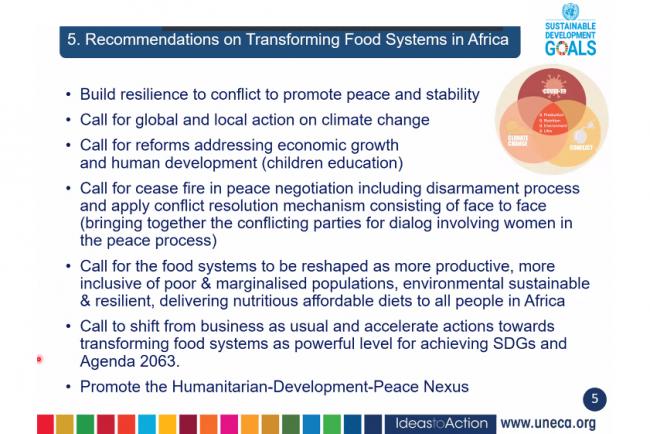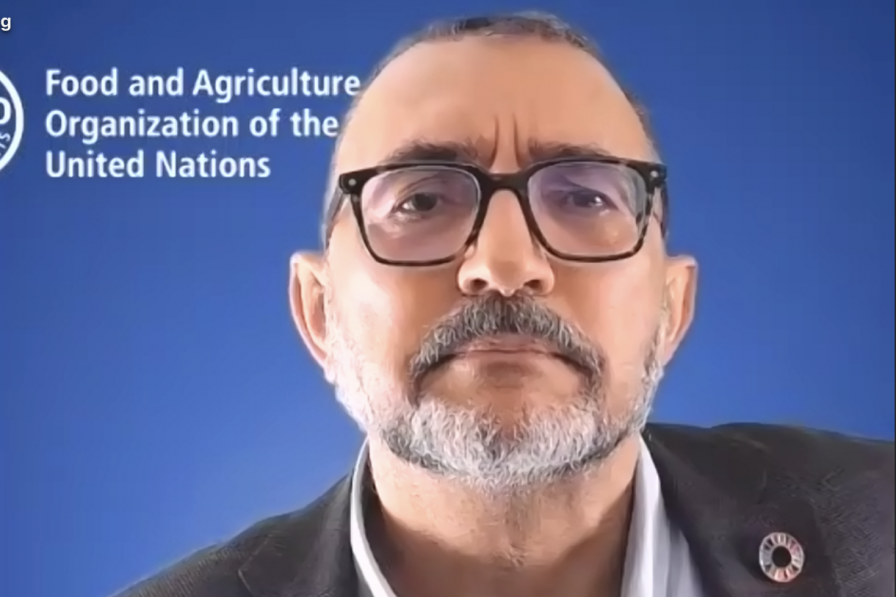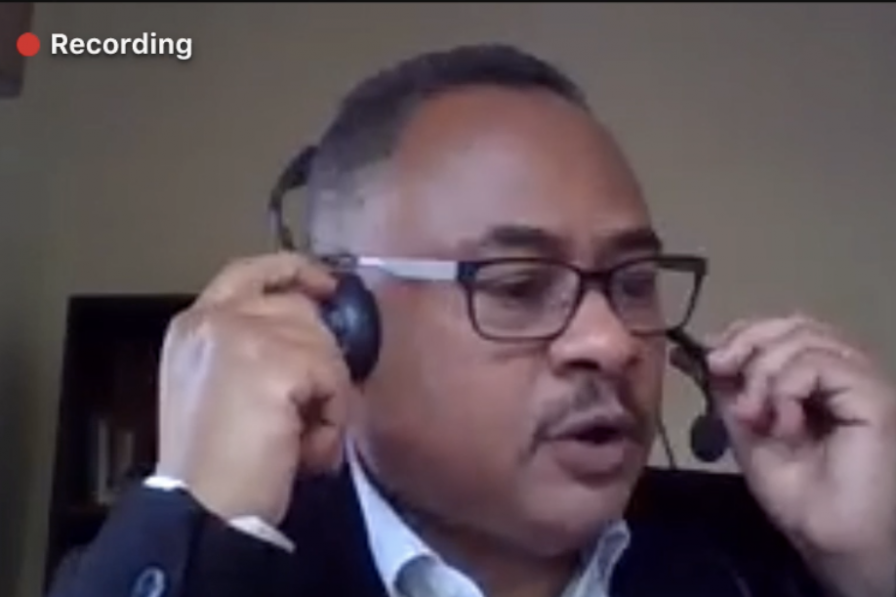Conflict-Climate Change-COVID-19 Nexus: A Food Systems Perspective
This event was organized by the World Food Programme (WFP), the Food and Agriculture Organization of the UN (FAO), UNECA, the International Fund for Agricultural Development (IFAD), and the UN Children’s Fund (UNICEF). Edward Addai, UNICEF representative to the African Union (AU) and UNECA, moderated the event.
In a keynote address, Chimimba David Phiri, FAO representative to the AU and UNECA, recalled the agriculture sector’s importance in Africa, both with respect to employment and gross domestic product. He said the triple crisis of conflict, climate change, and COVID-19 has put a significant strain on already fragile food systems. He noted climate change is a source of resource-based conflicts, through increased competition over water and land. He recommended, among other solutions : community-based approaches that build social cohesion; investing in nutrition-sensitive agriculture; and empowering women, noting this is key to enhancing household food security.
Kafkas Caprazli, FAO, recalled food systems encompass the entire range of actors involved in the production, processing, distribution, consumption, and disposal of food products. He said sustainable food systems deliver food security and nutrition for all, and ensure future generations’ bases to generate food security and nutrition are not compromised. Caprazli noted these food systems are profitable throughout, provide broad-based benefits for society, and have positive and neutral impacts on the environment. He cautioned conflicts disrupt agriculture and trade, and urged addressing the root causes of conflict in conflict-affected and conflict-prone countries, including gender-based violence.
Magdalena Moshi, WFP, said the conflict-climate change-COVID-19 nexus has exposed the fragility of food systems, affected supply chain functioning, and disrupted a number of peace processes. She called for a holistic view of food systems and for reshaping food systems to be more productive, inclusive, and environmentally resilient.
Amjad Abbashar, Chief, UN Office for Disaster Risk Reduction (UNDRR) Regional Office for Africa, stated there is an average of two disasters per week happening in Africa, generally water- and climate change-related, noting these have a ripple effect across society. He emphasized COVID-19 threatens development gains on the continent. Abbashar stressed the need to link humanitarian and disaster risk reduction (DRR) action from the outset.
Elizabeth Nsimadala, President, Pan-African Farmers’ Organization, and President, Eastern Africa Farmers Federation (EAFF), said COVID-19 came about at a time already “besieged with stress,” posing a bigger threat to the sector by limiting access to agricultural inputs and markets. She said significant learning still needs to take place, including through collecting and sharing success stories on the ground. She urged farmers’ associations to collaborate to ensure farmer-led approaches in the sector, and called for further investment in these associations.
Gerald Masila, Executive Director, Eastern African Grain Council (EAGC), lamented the poor state of African agriculture, pointing to crop failures and shortages driving up prices and food imports. He said this has also discouraged local investment in agribusiness. Processors, he noted, fail to secure sufficient raw materials locally and therefore rely on imports, which increases unit costs, lowers return on investment, and has proved challenging during the COVID-19 pandemic. Masila called for aggregating smallholder farms into large-scale operations, so they can choose one value chain in a locality and reach economies of scale, achieve mechanization benefits, and withstand shocks. Governance challenges, he said, include laws that do not hold leaders accountable for mismanagement.
Manyewu Mutamba, AU Development Agency’s New Partnership for Africa’s Development (AUDA-NEPAD), said while droughts are endemic to the continent, climate change is worsening their frequency and intensity. She pointed to “unforgiving agroecological conditions,” and stressed the urgency of tackling climate change. Mutamba called for advancing the interests of the continent in global platforms, strengthening states’ capacity to access international climate finance, and supporting “a coherent African voice” in climate change negotiations.
John Kanisio, Secretary-General, South Sudan Food Security Council, said South Sudan has experienced an overreliance on limited natural resources, leading to land degradation and erosion of biodiversity, especially where internally displaced people have settled. He lamented that conflict has disrupted the road transportation network, negatively impacting food security. Kanisio outlined cross-border trade challenges affecting COVID-19 response measures, and stated quarantine measures have complicated humanitarian interventions in the country.
In closing, Dina Saleh, IFAD,described the COVID-19 pandemic as a “watershed moment for humanity,” noting that COVID-19 recovery presents an opportunity to foster change by building a sustainable food system that requires supporting small-scale farming, securing land tenure, and ensuring access to clean water, reliable roads, tools, and technology. She underscored that extreme natural events hinder ongoing peace efforts, and climate change is a risk multiplier that can hamper these efforts.



